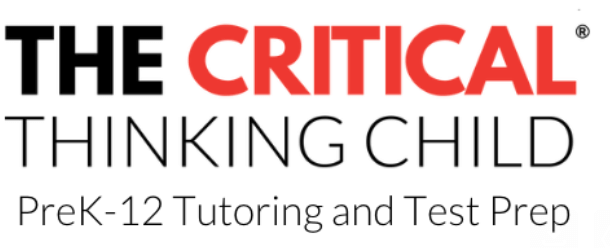Here are ten different warning signs that will let you know when your child is need of a tutor: Watch the video below and read the article.
#1: Schoolwork is overwhelming.
School should present a challenge for students, but if your child is past challenge and into survival mode, that’s a problem.
Students who are completely overwhelmed by work and academic tasks are unable to learn, and it can be very challenging to climb out of such a hole without help. Tutors can help your child manage the workload and figure out practical steps to follow that can get them back on track.
#2: You homeschool.
Homeschooling can be a good fit for many students, but sometimes it can be necessary to supplement their instruction with help from a tutor.
If you’re homeschooling your child, you might have weaknesses in certain subjects yourself. Identify the concepts that you might struggle with and share those with a tutor so you can work together to help your child.
#3: Homework is hard.
Just like with schoolwork, homework shouldn’t be a breeze; however, if you find your child spending hour after frustrating hour on homework every night, a tutor can help.
In elementary school, good rule of thumb is that homework should start at ten minutes nightly in kindergarten and increase by 10 minutes for each grade. For example, a second grader should have 30 minutes of homework while it’s more reasonable for a fourth grader to have 50 minutes of homework. Check in with a tutor and see if he or she can help your child expedite the homework process. And if your child is working at home, make sure you’ve set up a productive space dedicated to homework.
#4: Test scores matter.
Test scores shouldn’t be the only determining factor in hiring a tutor, but they do give you insight into where they may be struggling. If your child is in a situation where test scores are really important, you might consider a tutor.
For example, some schools and districts use test scores to determine which academic track students will be in for middle and high school. Many private schools use test scores for admissions. Performing poorly on the placement tests could affect your child’s academic trajectory for years. Use your judgment to determine the importance of your child’s test scores, and plan accordingly.
#5: There’s a life-changing event.
A move, a new baby, or a divorce all may seem unrelated to academic performance, but these life-changing events can have a huge impact on your child’s learning. A tutor can be a good fit for your child during these transitions. It will keep them focused and consistent, and it will also alleviate some of the pressure on you.
#6: You want to build critical thinking.
Even if your child is succeeding in school, a tutor can help build critical thinking skills. When you hire a tutor, make sure you share this goal with them, so they can focus on stretching and extending your child rather than mastering the basics.
Critical thinking skills are essential for success in higher education and the modern work force, and they can also be fun for students to practice!
#7: They need to prep for a high-stakes test.
Similarly to #4, if students need to prep for a high-stakes test and they are not naturally good test-takers, a tutor can be a good idea.
Tutors not only help with content, but they can also alleviate testing anxiety by introducing stress-relieving practices and test-taking skills. Gauge your child’s level of test comfort and even discuss the option of a tutor to help them gain confidence before the day of the test.
#8: They’re struggling with academic content.
This is the most obvious warning sign that your child needs a tutor: they’re confused about academic concepts. This confusion is preventing them from moving on to more advanced concepts, and they’re remaining stuck with no forward progress.
You can tell if they’re struggling by how independent they are with their homework and how they are performing on class assignments, tests, and quizzes.
#9: They’re struggling with executive functioning skills.
Executive functioning skills are any skills that help a person regulate their tasks and emotions. They can range from prioritizing tasks to keeping oneself from throwing a tantrum when frustrated.
A good tutor can help both the organizational aspect by offering study skills strategies. A great tutor will also address the emotional aspect, helping your child adopt calming and mindfulness strategies when they experience strong emotions.
#10: They’re doing well but nearing a transition.
Say your child is a successful fifth grader, but you’re worried about his management of multiple classes in middle school. Or they might be registering for advanced courses for the first time. Even if your child isn’t struggling, it never hurts to have an extra person on board to help manage study skills, workload management, and stress management for academic transitions.
If your child shows any of these warning signs, begin the search for a great tutor. It may be just what your child needs to get back on track!




